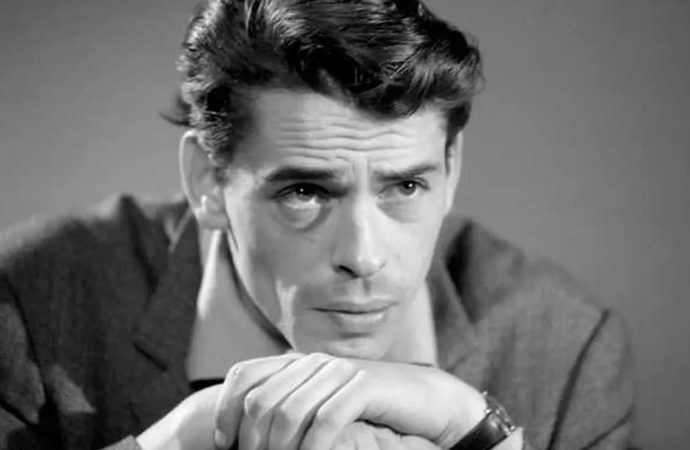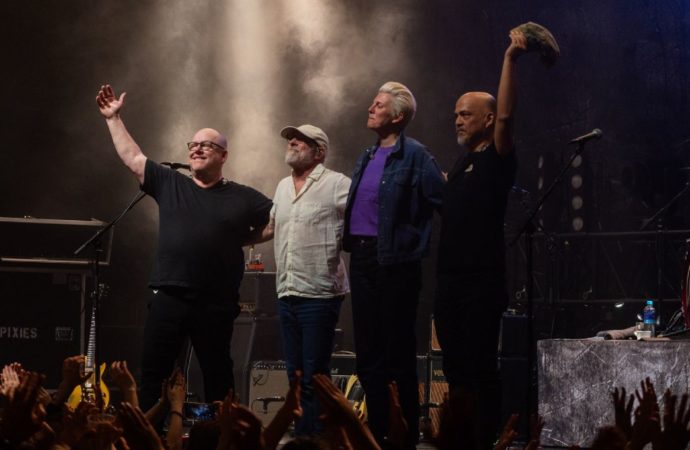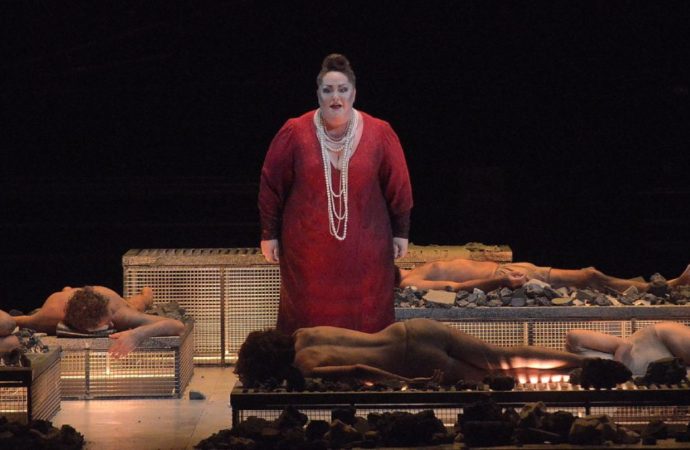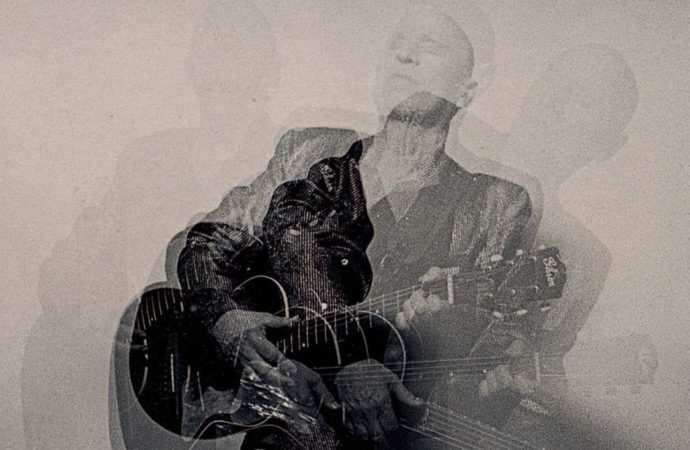It is 45 years since the death of Jacques Brel, one of the most important figures of what became known as chanson, but who is really one of the two or three most important figures of popular music in French in the 20th century. Although, in spite of everything, outside the French-speaking countries his enormous figure has been diluted to that of his influence on figures who speak in the Latin of our times, the omnipresent English, such as David Bowie, Marc Almond, The Divine Comedy or, above all, Scott Walker, his best pupil in the language of Shakespeare.
So I want to take the opportunity to highlight the career of a musical giant, someone who started playing guitar at the age of 16 and became the best French-language songwriter of the 20th century (well, next to Serge Gainsbourg) to escape the dull future in his father’s family business, trading the bourgeois life the fairies had assigned him for the bohemia of the cabarets and the underworld.
Jacques Brel et ses chansons – nº1 (1954)
Jacques Brel was born in Belgium into a Flemish Catholic family with its own business, a cardboard factory. Little Jacky, as he was called, started working in his father’s factory at the age of 17 and stayed there until he was 24, when he had the opportunity to record an album in Paris. In between he had started a double life in which he worked in the mornings in the factory and in the evenings he took his guitar and played in the cabarets of Brussels under the pseudonym of Jacques Bérel, since his father did not want to sully the family name by singing in nightclubs.
The fact is that Jacques Brel had a great melodic facility, putting in the postulates of the chanson his love for classical music and composers like Maurice Ravel or Franz Schubert. In 1953 he made a 78 rpm demo, which, after several carambulations, reached the ears of Jacques Canetti, a Parisian talent scout, who was the artistic director of Philips and owner of Les Trois Baudets theater. Canetti was a legend in his own right, he had been the first to bring figures like Louis Armstrong or Duke Ellington to France and had given his first opportunity to Edith Piaf herself. When he heard Brel, he didn’t hesitate for a second, he had him called to Paris immediately, the singer waited until the birth of his first daughter and the next day he left for Paris where he signed with Canetti.
His first performances were a failure but Canetti continued to support him, Brel was trying out his songs and the 9 that he liked the most became part of his first album, recorded in February 1954. He still does not have the theatrical style for which he will be known and he still plays the guitar, in his lyrics you can still notice his catholic education, which made another great of the ‘chanson’, Georges Brassens, call him at that time “Father Brel”, but here there were already songs like “Le Haine”, “Grande Jacques” or “Le Diable” that showed a composer with a lot of talent.
Quand on n’a que l’amour – nº2 (1957)
In the three years that separate his first two albums, Brel did not stop touring and playing without rest. In 1955 he met Georges Pasquier, Jojo, who would become his best friend and his man for everything, chauffeur, stage assistant…. In 1956 came the meeting with the wonderful musician François Rauber who would help to further sophisticate his music, with his wonderful arrangements and orchestrations, something that could be seen in this second album, led by the title song, one of the best of his career, and the first big hit of his career, when it was released in November 1956.
It is also a perfect example of what came to be called the ‘Brelian crescendo’, in which the song rises in intensity both musically and in the interpretation of Jacques Brel himself, and which was also captured by one of his best known followers, David Bowie, in the most ‘Brelian’ of his songs, “Rock’N’Roll Suicide”. But, in addition to his undisputed masterpiece, the album is also full of other great songs, such as the jazz touches of “Qu’avons-nous fait bonnes gens?” or “Hereux”, a hidden gem about two lovers separated but happy about the possibility of a next meeting.
La valse à mille temps – n°4 (1959)
Big words in the Brelian songbook, it could be said that it was in 1959 when Jacques Brel became Brel, goodbye to the guitar, in the theatrical interpretations that ended in the paroxysm of tears, the Brelian crescendo taken to the maximum in the theatrical interpretation and, musically, the definitive uncovering. Here appears his most remembered song and one of the most covered songs in history, “Ne me quitte pas”, with a bit of Franz Liszt and a lot of despair and abandonment, a “don’t leave me”, which was nothing but the end of one of his many romances —although for a guy who laughed so much at bourgeois morals, he never ended up abandoning his wife—, in which he left his soul and emptied his guilt complex.
But there is also thatwaltz at a thousand revolutions (“La Valse à mille temps”) in which Brel ends up so revved up that he seems to be rapping at the end, another absolute highlight. Of course, we cannot fail to mention the spectacular “Je t’aime”, with another wonderful arrangement by Rauber, the iconic and carabet-like “Les Flamandes”, the first of his diatribes against his Flemish nationalist compatriots, the apt “La Mort” (which had a well-known version by Bowie, in “My Death”) or the pacifist “La Colombe”. The first of his essential albums.
Olympia 1961 (1962)
Once Jacques Brel became Brel, the Belgian made of the Olympia what James Brown did of the Apollo: his home and the place where he gave his most mythical concerts and released his most famous live albums. The first of them, released in early 1962, collected the three performances he gave there at the end of October 1961. This album works perfectly as a greatest hits of Brel’s early years, beginning with that ode to his host home, Paris, which is “Les prénoms de Paris” and closing with the majestic “Quand on n’a que l’amour”, without forgetting his hurtful odes to the bourgeois (“Les Bourgeois”) or to the Flemish (“Les Flamandes”), his songs with women’s names like the wonderful “Marieke” and “Madeleine”, or his great classics like “Ne me quitte pas”, “Le moribond” or the unforgettable “La valse à mille temps”.
Les Bourgeois (1962)
In 1962 Brel was already the biggest star of the chanson and left his first label, Phillips, to sign with Barclays where his first album was this Les Bourgeois, which showed that Jacques Brel was still in his prime, with several of his best songs like the title song in which he was full of contempt for the bourgeois (The bourgeois are like pigs / The older they get, the dumber they get / The bourgeois are like pigs / The older they get, the more imbeciles). Although my favorite song on the album is that tribute to his native Flanders in “Les Plat Pays”, the only song in which he was still playing guitar on stage during the 60s (besides “Quand on n’a que l’amour”) or the lively “Bruxelles”, in which he paid tribute to the city of his childhood and youth.
Olympia 1964 (1964)
The most mythical Jacques Brel’s live album is the one that collects part of his concerts of October 16 and 17, 1964, and was released only 4 days later. There are many reasons for that, first Brel was at the peak of his career, that year he released on 45 rpm songs like “Mathilde”, “Tango funèbre”, “Jef”, “Les Bonbons”, “Au suivant” or “Le dernier repas”, besides that in this album appears the only interpretation of another of his most mythical songs, “Amsterdam”, his ode to sailors and prostitutes with accordion and the most dramatic of Brel’s crescendos.
In the original album there were only 8 songs, but in the subsequent reeditions they increased up to 15, with essential titles such as “Les Vieux”, “Tango funèbre”, “Le Plat Pays”, “Les Bonbons”, “Jef” or “Au suivant”. The interpreter Brel managed to transmit with every fiber of his body, with the expressions on his face, becoming the characters that populated his songs, drunks, prostitutes, losers, immersing himself in them and giving them a voice on stage during the three or four minutes that each song lasts. The connection with his audience was such that two years later, in his retirement concerts, in October and at the Olympia (as it could not be otherwise), he had to come out seven times to greet an audience that shouted Ne nous quitte pas (“Don’t leave us”).
Les Bonbons (1966)
In 1966, amidst rumors of the artist’s retirement, Barclays realized that they had the most famous artist, but had not released a full-length, non-live album since 1962 with Les Bourgeois, so they decided to put together several of his EPs and singles on two absolutely essential 33 rpm, the first of which compiled recordings from between April 2, 1963 and January ’64, gems like the title track, the beautiful “Les Vieux”, “Le Dernier Repas”, “La Fanette”, plus another of their most resplendent gems, the melodramatic “Au suivant”, in which they talk about a military camp that offers prostitutes to young recruits, who line up to have sex, before the cry of the next one, a masterpiece of misery and blackness.
Ces gens-là (1966)
The second Barclays compilation album of ’66 is Brel’s great masterpiece (along with his farewell), an absolutely masterful album that collects songs from 1964 and 1965. Wonders like that “Tango funèbre” in which he imagines his own burial, the melancholy and charm of the arrangement of “Jef”; the best of his songs with a woman’s name, “Mathilde”. Plus two wonders from 1965, the autobiographical “La chanson de Jacky,” in which one can see a reflection on age, beauty and ugliness, or a sign that Brel was retiring. Though my favorite may be the title track, which opens as a modal jazz piece in which Brel displays his incredible storytelling ability, in this case that of a bourgeois family whom the narrator (who tells it to a third person) despises. Vocally, the performance again begins subdued, but builds to a climax when he speaks of the daughter, Frida, with whom he is in love, but, despite his promises, he knows they will never let her leave with him, hence the contrast with the resigned performance that follows and ends the song.
J’arrive (1968)
Brel retired from the stage in 1966 to the stupefaction of an adoring public and began to flirt with the world of cinema, but in 1967 he released a new album, Jacques Brel 67, and in 1968 appeared this J’arrive, his tenth studio album. Here he showed that he was still a unique composer with an album structured to present a series of scenes that made a coherent description of several of his favorite themes, such as love, death or isolation. Brel wanted to say goodbye in style before devoting himself entirely to acting and film, and he did so with such memorable songs as the title track, with another wonderful arrangement by the faithful François Rauber, the spectacular “Vesoul”, a mixture of musette and swing, with Marcel Azzola‘s accordion, perfectly accompanying his voice throughout the song, or that preciousness called “Je suis un soir d’été” (I am a summer afternoon).
BREL o Les Marquises (1977)
Jacques Brel had sporadic returns to music after “J’arrive”, such as his French adaptation of the musical Man of La Mancha or the release in 1972 of the album Ne me quitte pas, in which he re-recorded some of his most famous songs, but he was more focused on cinema, although in 1974 he decided to leave everything and go around the world by boat, since sailing was one of his great passions. But the trip had to be interrupted because he was diagnosed with lung cancer (Brel smoked three packs of cigarettes a day). When the tumor was removed, he decided to continue his journey, but when he reached the Marquesas Islands, in love with an exotic place where nobody knew him, but also tired and weakened by the disease, he decided to stay there.
In 1977 the cancer reappeared and the doctors gave him little time to live. It was then that Brel decided to return to Paris to record a last album, a kind of musical testament in which he said goodbye to friends, such as Georges Pasquier, who had died in 1974, to whom he dedicated “Jojo”, or to insult the Flemish nationalists again with “Les Flamingants”, but, above all, to say goodbye to a public that asked him not to abandon them and that continued to adore him even though he had not released any new songs for almost 10 years. He did it all, as far as possible, on the sly, but when the news got out the orders for the album, before its release, were already in the hundreds of thousands, and when it finally appeared it became the best-selling French-language album in the history of France, up to that point.
It was not for less, in Brel’s farewell there are some of his best songs, the album opened in the old style, an accordion and Brel’s voice in “Jaures”, yes, there was an even greater aftertaste, something that was appreciated in the unfathomable sadness of “La ville s’endormait”, a perfect baroque pop song that again benefits from another wonderful arrangement of Rauber and the piano of the essential Gérard Jouannest, with whom he composed several of his best songs. The essential “Orly”, in which he reprises his role as narrator of a scene he witnessed at the Parisian airport, the devastating “Voir un ami pleurer”, in which he comes to say that there is nothing sadder than seeing a friend cry, over a piano line by Jouannest that Badalamenti surely had in mind when he composed Twin Peaks, and closed with the masterful title song, in which he paid tribute to the landscapes of the archipelago, evoking Paul Gauguin (who also spent the last years of his life there and was buried there) and the passage of time, which has no brake in the Marquesas Islands.
After recording the album, Brel returned there, until July 1978 when his health condition worsened and he returned to France where he died on October 9, 1978. In the French-speaking world he remains a deity, but in the rest of the world he is just a footnote to the Bowie, Scott Walker or Leonard Cohen, but it goes without saying that if he had sung in English he would rightly be placed where he belongs, on the same rung as any of those mythical names.









No one has posted any comments yet. Be the first person!